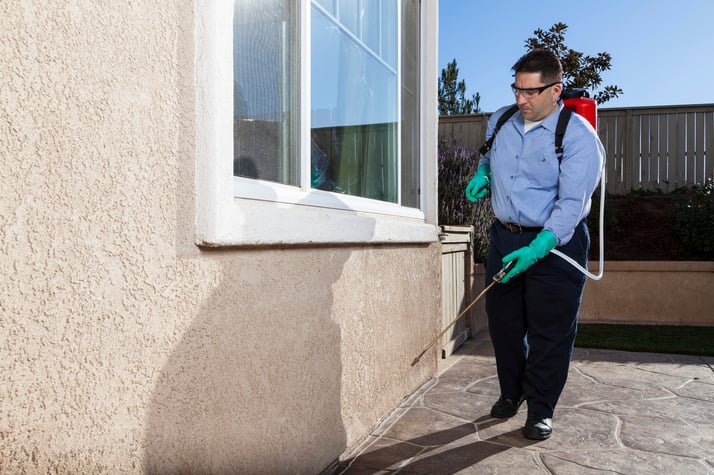
Pest control is one of the less glamorous sides of owning a rental unit. Depending on your location, unit quality and tenants it may also be an ongoing concern in some or all of your units.
Unfortunately, a case study done by the National Center for Healthy Housing shows that your tenants are unlikely to report current or developing pest control issues. Some common reasons that your tenants may fail to report or take care of pest issues are because they:
- Can not afford to take care of them
- Do not want you to enter their home
- Believe you will not fix the problem
- Believe they may be reported to authorities
While pest problems are sometimes unavoidable, they are often a result of poor home hygiene practices and tenants who are refusing or unable to keep up with basic pest control. As a property owner, it is in your best interest to ensure that your investments are pest free. To do so, you will need to face this issue head-on.
The Lease
Keeping your properties free of pests can fall to you if the tenant refuses to take responsibility for their living conditions. It is in your best interest to outline your expectations regarding home hygiene and pest control directly in your lease. Many areas have laws regarding which party is responsible for pest control and you may be unable to charge some tenants for certain types of pest control based on the environment your rental unit is located in.
Make sure you follow all applicable federal, state and municipal rules regarding pest control in your area when creating your lease. If the lease agreement is not enforceable, then you will not be able to collect for pest control and damages caused by tenant neglect.
Scheduled Service
Property owners often contract with outside companies to provide pest control services. These companies may cost more than do-it-yourself methods but have a higher rate of success. Depending on your location, you may be required by law to provide seasonal pest control services at all of your units as part of your agreement to upkeep those properties. Make sure you educate yourself on requirements in your area and set up a service schedule that works for you.
Regardless of whether you are required to offer them, regular pest control services will help reduce the damage done to your properties by mice, roaches, and other preventable infestations and are worth investing in. Ignoring a problem you know is devaluing your investments because your tenants are not asking for services is a great way to destroy your reputation and your property.
Unscheduled Services
Treatment and emergency services are not covered as part of your regular services contract. If you have a property in need of specific services such as snake, bed bug or roach control you will need to contact them directly to schedule it. Preventative services are designed to hold back some infestations (e.g. roach or ant) but are not always successful and some pests such as bats, squirrels or snakes require special treatment.
You may need to locate more than one contractor to provide unscheduled pest control. Many companies experience periods of high service volume and may have significant waiting lists during that time. However, as part of their service contract some pest control companies may be willing to sign an agreement that requires they make themselves available to perform services for you within a certain period of time.
Tenant Related Issues
No matter how hard you try, some tenants will refuse to work with you to keep their units free of pests. Because your rental unit is not their property it can be hard to motivate tenants to become involved. While providing them with free pest control tools - such as mouse traps, ant bait or exterior treatment chemicals can engage some, many will fail to maintain these preventative efforts.
As the landlord, it is your job to uphold the lease agreement. If your tenant refuses to practice healthy home hygiene, then you will need to enforce it. Otherwise, you run the risk of developing a massive infestation if their behavior goes unchecked.
Make sure your tenants understand what you expect of them in regards to regular pest control measures. Keep an open line of communication regarding scheduled times for treatment and enforce that schedule. When unscheduled services are provided your tenants will need to follow all pre- and post-treatment directions from your service provider. Failure to follow those directions can result in reinfestation.
Pest control is a regular part of maintaining the habitability of your properties. Hometeam Property Management offers maintenance and tenant services solutions that can reduce the time and stress of locating, managing and ensuring tenant compliance in regards to pest control.
